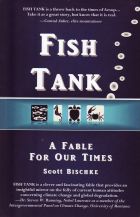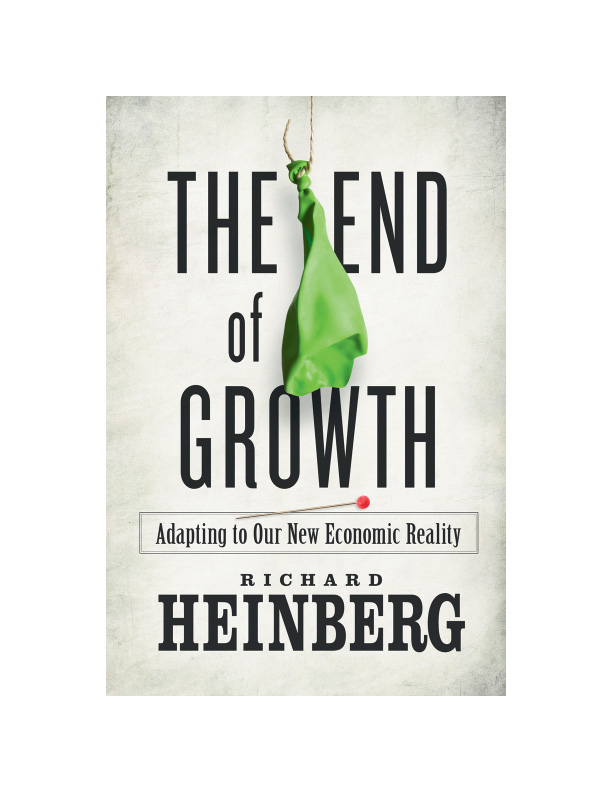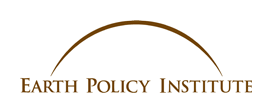Fish Tank: A Fable For Our Times by Scott Bischke is an innovative take on a very real and serious problem, climate change. The End of Growth: Adapting to our New Economic Reality by Richard Heinberg of the Post Carbon Institute describes what policy makers, communities, and families can do to build a new economy that operates within Earth’s budget of energy and resources. For full blog post, please visit the EPI website.
FISH TANK: A Fable For Our Times (125 pages) by Scott Bischke is a creative and entertaining story for all ages. It is an innovative take on a very real and serious problem, climate change. The book takes place in Professor Brown’s aquarium where an assorted group of sea creatures are left for a year while he is on sabbatical and the person responsible for caring for them shirks his duty. Faced with finite resources and looming scarcity, the creatures must make tough decisions for their survival.
 Fish Tank neatly symbolizes current human attitudes on climate change and global degradation, including greed vs. altruism. There are the scientists who try to educate the others on what will happen if they continue with business as usual, the selfish taking more than their share, and the skeptical who confuse the truth. The story illustrates the importance of getting involved, becoming a part of the solution rather than contributing to the problem. Whether you are interested in environment awareness or not, Fish Tank is a quick and original read that everyone can enjoy.
Fish Tank neatly symbolizes current human attitudes on climate change and global degradation, including greed vs. altruism. There are the scientists who try to educate the others on what will happen if they continue with business as usual, the selfish taking more than their share, and the skeptical who confuse the truth. The story illustrates the importance of getting involved, becoming a part of the solution rather than contributing to the problem. Whether you are interested in environment awareness or not, Fish Tank is a quick and original read that everyone can enjoy.
THE END OF GROWTH: Adapting to our New Economic Reality is by Richard Heinberg of the Post Carbon Institute. Economists insist that recovery is at hand, yet unemploym ent remains high, real estate values continue to sink, and governments stagger under record deficits. In The End of Growth, Heinberg says that humanity has reached a fundamental turning point in its economic history: the expansionary trajectory of industrial civilization is colliding with non-negotiable natural limits.
ent remains high, real estate values continue to sink, and governments stagger under record deficits. In The End of Growth, Heinberg says that humanity has reached a fundamental turning point in its economic history: the expansionary trajectory of industrial civilization is colliding with non-negotiable natural limits.
Heinberg goes to the heart of the ongoing financial crisis, explaining how and why it occurred, and what we must do to avert the worst potential outcomes. Written in an engaging, highly readable style, The End of Growth describes what policy makers, communities, and families can do to build a new economy that operates within Earth's budget of energy and resources. We can thrive during the transition if we set goals that promote human and environmental well-being, rather than continuing to pursue the now-unattainable prize of ever-expanding GDP.
Since its publication in August 2011, economic conditions around the world have reinforced the ideas presented in The End of Growth. The e-version of Heinberg’s best-selling novel was updated in June with more than twenty additional pages that take a look at what is happening right now in Europe, China, the United States, and elsewhere.
Best,
Julianne Simpson


